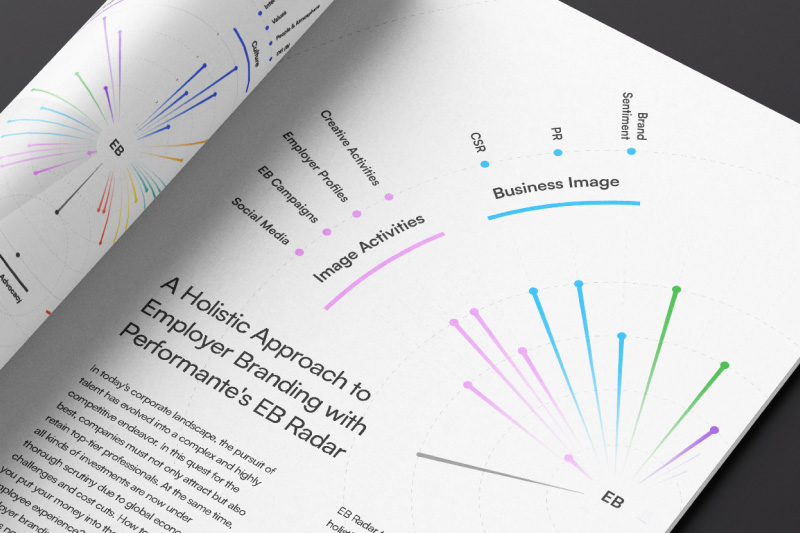Employer branding has already established a strong position throughout Europe. The challenges that the labor market has been facing for years are well known to recruitment marketing specialists and employer branding professionals. Employees expect better working conditions, while companies seek engagement strategies that evolve from generation to generation. A great way to find fresh and creative tactics for attracting talent is to look at markets other than our own, where the “employer-employee” relationship is completely different. From this perspective, South America can be a very interesting reference point. It is a vast, developing market that is currently undergoing significant transformation for both employers and employees. The concept of employer branding in this region is still an “open book.”
What makes us different?
South America has its own distinct characteristics that, despite similarities, are a “New World” for European businesses. According to the International Labour Organization, economic recovery in the region is expected to remain slow in 2023 due to various factors such as high inflation, debt levels, political instability, and the impact of COVID-19. From a trade and labor division standpoint, South America is geographically distant from the rest of the world. The distance between two economic centers in the Western Hemisphere, São Paulo and New York, is almost 8,000 kilometers, which is even more than the straight-line distance from Warsaw to the capital of Mongolia, Ulaanbaatar. The future of this market lies in the increasing importance of solving social problems to promote sustainable economic growth. Despite significant challenges, South America is characterized by resilience in difficult times. The region’s financial systems have largely weathered financial crises, and society has experience in dealing with difficulties arising from political and economic instability. This resilience is why the South American market has repeatedly surprised and will continue to surprise, showcasing growth opportunities, especially in the technology and renewable energy sectors. But let’s start from the beginning.
Perspectives are key
A report monitoring the state of education in South America and the Caribbean in the context of Sustainable Development Goal 4 (SDG4) for 2030 provides important information on challenges and progress in the region. Both markets emphasize high-quality education for all students. The presence of these shared goals demonstrates a global understanding of the importance of education for social and economic development. However, Europe tends to have greater political and economic stability, which often translates into better educational conditions. European systems often adhere to international standards and focus on innovation and technology as supporting tools for the teaching process. In South America, there are various challenges, such as social and economic inequalities, lack of resources, and inadequate teaching quality.
How does this impact employment?
The South American job market is characterized by many challenges, including a high level of unemployment, which stood at almost 8 percent at the end of 2022. This rate is significantly higher than the global average, and this problem is further exacerbated by the high cost of employing workers and complex and time-consuming legal regulations that hinder the recruitment process. General results are not always the best source of information, so comparatively, the unemployment rate in Poland in Q1 2023 was 5.5%, while in Colombia, it was close to 11%. According to the International Labour Organization, approximately 53% of workers in South America and the Caribbean are employed in the informal sector, which leaves them without the protection and benefits provided in formal employment. In contrast, employers in Europe rely on their employees, maintaining their position through strong labor regulations, less than half the level of informal employment, and a lower level of employment uncertainty. There is a large labor supply in South America, which leads to increased competition among workers and allows employers to impose unfavorable employment conditions. The difference in the dynamics of labor market relations between South America and Europe can result in significant differences in employment issues, with workers from South America struggling to find stable jobs with fair wages and benefits, while employers in Europe face difficulties in attracting and retaining qualified workers. Can we then say that South America is still a strong employer’s market rather than an employee’s market? Not necessarily.
South America is for the world
Employers from the North are increasingly making their mark in the South American job market. The United States and Canada are attractive options, especially for young talents, among whom the prospect of career development in their home market is less financially advantageous. Younger generations expect changes within and outside of companies, particularly in terms of equal opportunities, development, and work-life balance. For foreign competitors, who are increasingly facing a lack of desired skills in their domestic markets, the cheaper and consistently well-qualified talent pool in South America is a significant direction to explore.
The average salaries in Argentina in 2022 were around $412 per month, while in Colombia, it was nearly $1,300. In the United States, the average earnings exceed $5,000 per month. Is the contrast too small? In the tech industry, programmers in the US can expect an average annual salary of $110,000, compared to less than a third of that in Argentina and one-tenth in Brazil. The average cost of employment in the United States is $4,700, which accounts for up to 40% of an employee’s base salary.
Local companies can hire three South American programmers for the price of one US employee. How does this issue compare to the European market? Among the top-paying countries for programmers, eight European countries rank in the top ten.
So what attracts talents?
In the two described markets, the expectations towards employers differ significantly. European employees expect attractive salaries, a positive work atmosphere, and a strong emphasis on work-life balance. South America, on the other hand, is the only global market where professional development is crucial and put on par with stable remuneration and a favorable work environment. According to a study conducted by Randstad, compared to South America, 20% fewer European respondents emphasized career development as a significant factor influencing their decision to join a company. It is worth remembering where Europe stood in terms of legal regulations, unemployment statistics, or the acquisition of employees from less developed markets just a few decades ago. The era that began in the early 1990s presented similar challenges, and although not exactly the same, looking at South America today, it can be said that in a few years, this market will equally ambitiously strive for the best talents.
Culture is the foundation of the job market
Differences in communication and culture between South America and Europe impact employers’ approach. John Hooker from the Tepper School of Business at Carnegie Mellon University distinguishes between two cultural categories: high-context culture, where relationship building is valued over information transmission, and low-context culture, where communication is more direct. In South America, it is customary to start business meetings with social conversations, which is crucial for relationship-building, whereas in Europe, communication focused on meeting objectives is more common.
Very personal space
Differences also extend to time and personal space. Being late for social meetings is more accepted in South America, and personal and professional boundaries are more fluid. At the same time, in this region, it is still normal to inquire about personal matters during recruitment, such as an employee’s marital status. Let’s imagine how this question would be interpreted today from a European perspective. In South American culture, status in the hierarchy is important, whereas European companies place greater emphasis on individual achievements and performance. While in South America, employees identify their position and power in relation to the organizational hierarchy, Europeans are not afraid to question their employers’ decisions, doing so from junior positions to senior ones. Management style and organizational culture have a significant impact on employer branding. In South America, it is important for a company to create an image of a friendly and engaged employer that values good relationships with employees and provides moral support. On the other hand, in European companies that focus on individual achievements and performance, it is important for employers to create an image of an organization that rewards and appreciates employees’ accomplishments. South American culture is rich in emotions and strongly connected to expressing feelings, which is why communication related to employers often focuses on values such as social engagement, social responsibility, and sustainable development. Emotional messaging allows for better engagement of employees and potential candidates, especially when communication focuses on transforming their lives through work.
What else distinguishes South America?
People often work long hours, and work-life balance may be less favorable compared to Europe. In this context, especially in some European countries, there is a greater understanding of this issue. Remote work is also interesting, with 38% of employees in Europe having the possibility, according to Randstad, while in South America, almost half of the entire market has that opportunity. What may work in one culture may not work in another. It is therefore important to understand the expectations and values of employees in different cultures and adapt employer branding activities accordingly.
Diverse from different perspectives
Diversity and inclusion are also communicated and understood differently. European countries are usually at the forefront of diversity and inclusion initiatives in the workplace. High awareness and regulations regarding equality and employee protection are common in many European countries, where according to a Workday survey, 75% of organizations have dedicated budgets for D&I, and nearly 90% carry out projects dedicated to this area. In comparison, in many South American countries, actions in this area are still in the development phase. Although some companies make efforts to promote D&I, there are still many challenges, such as gender inequalities, discrimination based on sexual orientation, and a lack of representation of different social groups. A Bain & Company report shows that South America has made progress in promoting D&I policies in the workplace. According to the study, Brazil and Mexico stand out as leaders in inclusion, achieving 72% and 68% respectively in promoting this area, and the technology and financial sectors in these countries have made significant progress in ensuring equal opportunities and a diverse workforce.
And finally!
Performante, operating in Colombia for three years, has gained a unique perspective on this region, discovering an increasing number of differences. Our advantage lies in our ability to take a holistic view of the market, using external perspectives to adapt to local needs. We are international experts, but we always act like local specialists. Our tactics are realistic and perfectly tailored to this market. Although there are certain similarities, differences prevail. Our goal is to understand and identify these differences, constantly creating employer branding strategies that work in both markets. Through initiatives such as the People First competition, we strive to bring these cultures closer together and enable mutual understanding. The next edition will take place on July 27th in Bogota. The job market in South America still remains an open book, which means a range of opportunities for companies building their employer brand. However, we must remember that the region faces many challenges, including high unemployment rates, a large informal sector, and complex legal-labor regulations. Unlike Europe, where work rules are more regulated, and employers rely on their employees, South America still has much to offer to companies seeking new growth opportunities. However, do these new opportunities always prove effective?





